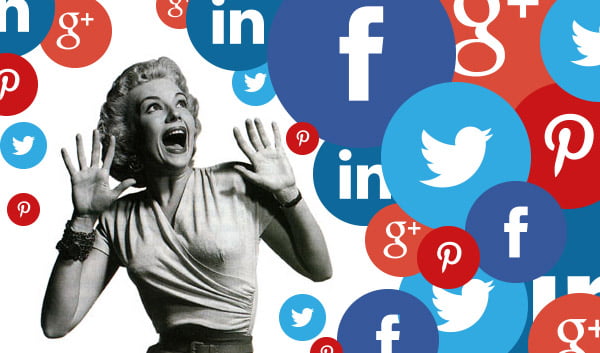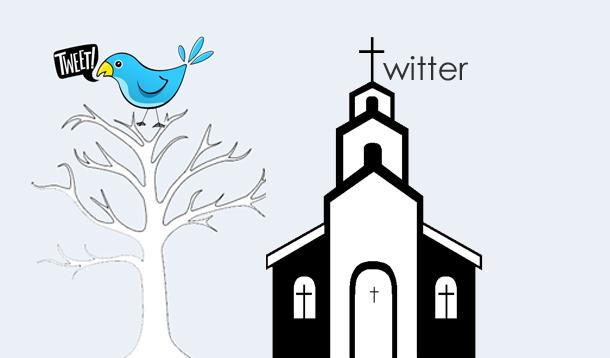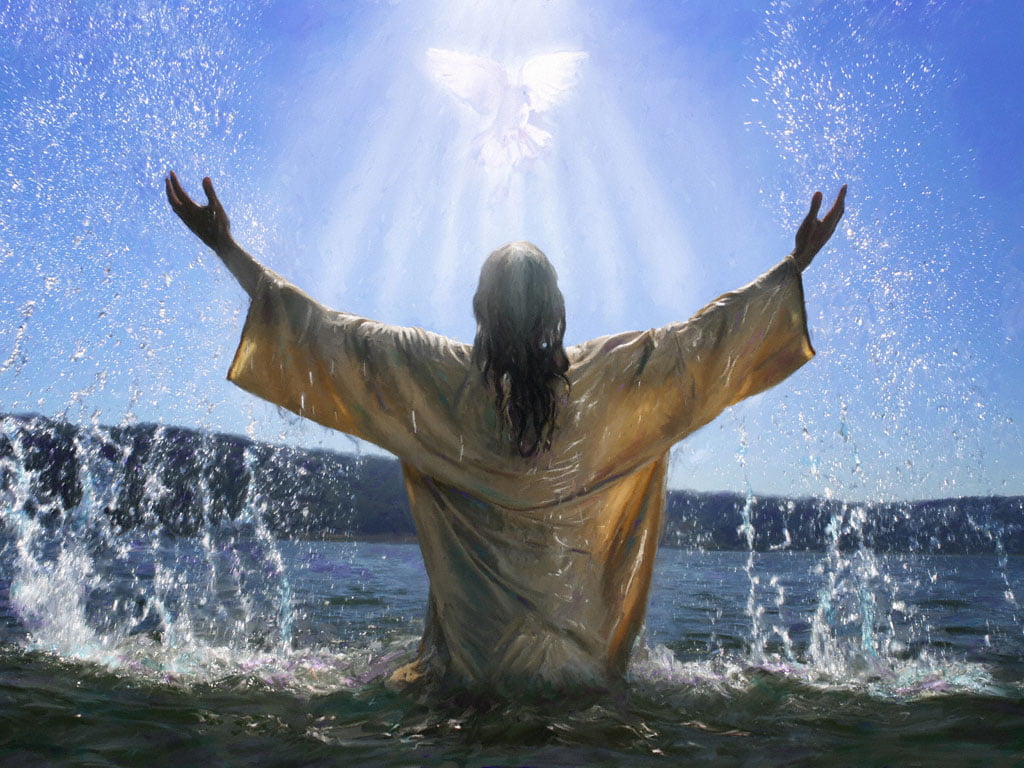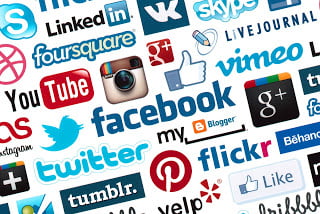 It's rare you meet someone who doesn't have at least one social media channel active (even if they're forgotten the password).
It's rare you meet someone who doesn't have at least one social media channel active (even if they're forgotten the password).
Facebook, Twitter, LinkedIn everybody is doing it. The day I got a "friend" request from an 85-year-old church member several years back I knew the trend was 100% here to stay!
And if you simply refuse, then you at least have to have working knowledge of what it's all about.
As you know, I'm a fan of social media.
Having led the social team at Feed the Children for a season and even recruiting a church member or two via Twitter back when I was the pastor of Washington Plaza I love making disciples of the art form. I know it can work-- to make new friends, to grow your affinity community and to share ideas (and photos) that add value to the world. At its best, social media makes the world feel kinder, smaller and those big hairy goals not so unattainable.
But on the flip side, social media can be a weapon of destruction. Online bullying is at an all time high. Even elementary school students know what cyber terrorism is. And, living a private life? What's that?
 Family relationships spoil by harsh words said with the whole world watching.
Family relationships spoil by harsh words said with the whole world watching.
Friendships sour when someone posts they're visiting your hometown and they didn't bother to call.
Employers sigh when they learn things about their employees they never wanted to know, just by starting up their computers.
It's a crazy world out there when our social interactions with one another are no longer just about the face-to-face kind of talking. We misunderstand one another. And we can easily forget one another too (even with all of the built-in reminders!) as our feed grows longer and longer with touch points to every Jane, Sally and Dick we've ever known.
So what's the solution in this "you can't but be social" world? How do we figure out how/ when/ why to post?
I think about this question all the time, especially as an author-to-be with requirements from my publisher about what type of online presence I maintain. I know what I do online matters. And I never want to take the online community I've built for granted or to miss an opportunity not to speak out on causes that matter.
But then this is where I worry . . .
I have colleagues who are fellow pastors, influencers and known public speakers who seem to post (in my opinion) all the time. Every time, they read a book. Every time they eat a really great grilled cheese sandwich. Every time they have a conversation with a friend that moves their spirits or delights them.
As a "follower" of theirs, I watch how people respond to their openness, gut level honesty and frequency of posts. They are so beloved! I do admit that I learn a lot from their posts about what to eat where, what political articles I should read and even sometimes get a kick in the pants from their convictions put to practice.
I want to be a person that my dearest friends know the best.
I want to be a person that can have a wonderful date with my husband and doesn't brag.
I want to be a person who makes advances in my vocational life that LinkedIn doesn't have to congratulate me for.
In fact, during a particularly tender time in my life several years ago, I went off cold turkey from social media for many months. It was the best self-care! Sometimes, we all need a complete break.
While none of us can avoid social media, we can make the best choices for us about when/ how we post. Asking ourselves the question when we do post: "Why am I sharing this?" And "What do I want to accomplish?"
For me, not willing to bear my soul to the world on a daily basis might limit how quickly my reach may grow. But, at the end of the night I don't want to feel that oversharing ickiness either. There are some memories and experiences so precious to me that I reserve the right to savor them privately.
So, though we can't avoid being both online + social, let us encourage one another to be ourselves to post with purpose and in a way that builds us up!
 "You should really try Twitter, Elizabeth. It's a good networking tool for the church."
"You should really try Twitter, Elizabeth. It's a good networking tool for the church."
Such were the words from a communications professional friend. In 2008, they fell on my deaf ears.
My distant impression of twitter was a bunch of people saying: "I had a peanut butter sandwich for lunch."
Who really cared? I just didn't see the usefulness in that.
And, furthermore, why did I want to keep up with one more thing in my already over-media-stimulated life ?
I didn't have time.
But, never wanting to be a person behind on something new, I finally gave in to my friend's suggestions, and after a short tutorial from him, I was up and tweeting for the first time in the spring of 2009.
And since then, my love of twitter for ministry has grown and grown. I LOVE Twitter.
This is why-
Through Twitter, I've become friends with new colleagues that I still haven't met face-to-face but now count as great encouragers in ministry.
I've recruited new church members who found me on this site (yes, it really happened) and who later began attending weekly worship regularly.
And a bridge has emerged through Twitter to share my sermons with folks who might never attend a local congregation. Preacher on the Plaza went to Twitter-ville.
Most recently, I've been schooled in important social movements like #Ferguson #BlackLivesMatter #MoralMonday from those on the ground doing really important work!
Different from Facebook which you might be more familiar, Twitter allows you to share conversations without sharing any more information that you are comfortable with.
In choosing to "follow" particular individuals or groups, you gain access to their updates, but they don't necessarily see yours unless they "follow" you as well. (You can even make your profile private if you want to).
The key to Twitter is that you only have 140 characters per post. If you go over this limit, your thoughts are prohibited from being shared. Over time I learned:
If you want more followers, it is good to follow others.
If you want others to keep following you, it is good to tweet more often than once a month.
It is also wise to follow only people in whom you have an interest; for if you don't, your home page will easily fill up with unhelpful spam. And who likes spam?
As I've tweeted now for 6 years and taught others to do the same, I've often thought about the parallels to the church. The "rules" of twitter might have a lot to offer us in the church.
Not only should we tweet, but we should take our cues from our culture's love of tweeting. 
First, say what we need to say and stop.
The days of long typed newsletters addressed with a stamp on a letter in the mail are over. If we want to make connections to potential church members, we have to speak concisely and speak online. We must grab their attention and let them come to you. More words does not equal better.
Second, if we want to reach more people with our churches, then we must "follow" people outside our normal social circles.
It's so easy to connect with those in whom we have natural affinity: moms at our children's schools, other retirees on the golf course, or our neighbors next doors. But if we don't get out of our comfort zones, then we could miss out on amazing possibilities of relationships with people who would benefit from knowing us and us them!
Third, it's a necessity to stay connected to those on our membership roles.
Relationships, like Twitter followers, take time and effort to keep going.
Like Twitter, just because someone joined the church several years ago, doesn't mean that finish line has been reached; it has only just begun!
It is easy for folks to feel "de-followed" by our church when our fellow church members miss important life events like births, deaths, or deaths, without some sort of contact. Communities must communicate together.
After all, the church, like any good means of technology is never something to be mastered all at once. Rather church is something we grow into as it's learned and practiced together.
So, might you consider giving Twitter a try? Find me @elizabethhagan and let's talk!
Or if not, at least consider take your cues, oh church loving friends, from this amazing social media tool.
Who You Really Are: a Baptism Selfie
Matthew 3:13-17
Preached January 12, 2013: Watonga Indian Baptist Mission Watonga, OK
![BdpyZK3CYAAPEG3[1]](https://elizabethhagan.com/wp-content/uploads/2014/01/bdpyzk3cyaapeg31.jpg) It has been said the word of the year of 2013 was “selfie.” Do you know what a selfie is?
It has been said the word of the year of 2013 was “selfie.” Do you know what a selfie is?
It’s a picture you take of yourself when there is no one else around to take your picture and then it is usually posted right away to Facebook or other social media sites (I took the one to the right when I was writing this sermon).
One of the responsibilities I have with Feed The Children is to volunteer with their social media department so I’ve watched the headlines closely on this growing trend. Teenagers in particular love it (Checked out Instagram lately?) And so do politicians. It made the headlines of the national news on Friday, June 14th of last year when former first lady and secretary of state, Hillary Clinton posted her first “selfie” a photo of herself with her daughter Chelsea. And then posted the photo to Twitter. Then, religious folks are into it too. Pope Francis is known to allow students—when they met him to pose for selfies.
We are a self-obsessed culture it seems. We like taking pictures of ourselves. We like taking pictures of important people.
But let’s continue the trend here this morning. Have a phone with a camera in it? I am doing something that a lot of pastors would not ask you to do in the middle of the sermon. I want you to get out your phone and if it I has a camera function I want you to position your screen on this page. Now, what I want you to do is get in groups with folks sitting in the pews beside you and take a picture of yourself with them.
(Later if you want you can share this with your friends/ family who aren’t with us in church this morning and show them through your smiling face what they are missing out on! Or you can post it to Facebook or the like).
But, now that we’ve taken these shots, pause with me and look at the picture of yourself. Who are the people in the picture? And then who are you? What is your full name? What is your story? Where did you come from? Who are your parents? What events in your life have led you to this moment right now when you are a part of this worship service? What does this picture you just took say about you?
In our gospel reading for this morning, we meet Jesus in what one Biblical commentator calls the “Jesus selfie.”[1]
Though we read the baptism stories in the three other gospels—Mark, Luke and John, only in Matthew does the narration focus our attention solely on Jesus. In Matthew’s story, there’s no indication of the heavens ripping dramatically open as there is in Mark’s gospel. And there’s no lengthy description about the Spirit coming down and descending among the scene as there is in John’s gospel. And furthermore, there’s no emphasis on the crowd gathered like in Luke’s gospel.
Nope—in Matthew’s account of Jesus’ baptism what we get is the straightforward story. The author’s intent is clearly to focus our attention not only the main event at this juncture in time, but on the main person we need to get to know: Jesus.
Jesus came forth from Galilee to the Jordan River where a crowd had already been gathered for quite sometime and John comes to Jesus and says (look with me at verse 14): “I need to be baptized by you, and do you come to me?”
But then Jesus answered John saying, “Let it be so now; for it is proper for us in this way to fulfill all righteousness.”
And in these few words, I believe that Jesus is giving us revelation into what this “selfie” moment is all about. Jesus wants us to see him as Lord. Jesus wants us to see him as the ONE that John had been preaching and teaching about when he quoted the prophet Isaiah and said, “The voice of the one crying out in the wilderness; ‘Prepare the way for the Lord.’” Jesus wants us to see him the Messiah that Israel had been waiting for all these years—the one who would bring salvation to all.
But it’s interesting isn’t it that Jesus says “It is proper for us in this way to fulfill all righteousness?”
What does this mean? Often when you and I think of the word “baptism” we equate it with forgiveness of sins. Especially in the Baptist tradition where we don’t baptize infants but we wait for a person to get old enough to recognize their own faith and choose salvation found in Jesus for themselves—it is very easy to think baptism is about repentance.
And then this gets confusing when we see Jesus submitting himself to this act in the passage before us today because what did Jesus do to need forgiveness from? Wasn’t he perfect after all?
Yes. I believe he was perfect and lived a perfect life and this moment was not about making his life pure or right with God (for he WAS God). Rather Matthew is trying to show us Jesus’ moment of commissioning. It was his moment to stand before a gathered group of people and for as verse 16 tells us for the “heavens [to be] opened to him and [Jesus] to see the Spirit of God to descend like a dove aligning on him.”
This was no joke. Jesus was the real deal.
 Jesus’ life would be forever changed from this moment on. He had a calling on his life. He had a life path full of places to go and people to see. He had a kingdom to bring to earth.
Jesus’ life would be forever changed from this moment on. He had a calling on his life. He had a life path full of places to go and people to see. He had a kingdom to bring to earth.
In baptism, this was the start of great things to come: the binding up the brokenhearted and bringing good news to the poor. It was the start of Jesus teaching, preaching and healing. It was the start of Jesus’ fulfilling the calling that he was born to fulfill.
And so it was a perfect day for a selfie.
If there was Facebook in ancient Palestine, I can only hope that this photo would have gotten lots of shares and likes if Jesus later posted it. Or at least lots of second looks—something was certainly changing by the Jordan River that day and the world would never be the same.
For those of you in this room who have been baptized, do you remember your baptism service? Who was the pastor? Do you remember who attended the service? Or even how you felt being touched by the cold water?
I was seven years old when I first touched the baptismal waters. It was in a Tennessee church. The baptismal pool was positioned in the sanctuary to the side of the pulpit—much like this one. I remember being excited about the big day. My grandparents had come for the service—both sets. I was getting a new Bible from the church with my name monogrammed on the outside cover. My father, the pastor, would be the one immersing me in the water.
I don’t recall much about the actual baptism service other than the waters being cold (it was a especially cool March morn). And being glad that it was all over. I never much like all the attention being focused all on me.
But how did I get there? About out a month prior I’d told my parents I wanted to become a Christian. I felt sorry for the things I’d done that had made God sad. I wanted to be an official part of the congregation. In my church growing up only baptized Christians could take communion. I didn’t want to be left out of that anymore.
Looking back on my seven-year old self now, I am not sure quite I had any idea what I was getting into. And maybe I was too young to have making such a life decision but regardless it was a choice I made and waters I entered into and my life was never the same.
For me it would take a church camp experience as a 12 year old to begin to understand what happened to me when I made the choice to follow Jesus—and for me to begin to really claim Jesus for my life slowly but steadily of course with some major bumps in the road. And in those moments at camp as I tried to make sense of my life and what God wanted from me, the thing that came back to my mind was my baptism.
I remembered my baptism. And I knew that in remembering it my life’s direction was no longer just about what I wanted to do. Rather it was about connecting my life to a greater mission. And that mission was of Jesus—a Jesus who wanted to know me personally.
See because in that moment when my dad baptized me in the name of the Father, and of the Son and of the Holy Spirit—calling upon the names that were present at Jesus’ baptism, my life was affirmed as not my own.
And yours, oh baptized friends of mine is not yours either. Hear me say this: baptism is not about you. I dare say it is not about feeling guilty about sin. It’s not about making sure you’re on the rolls when you get to heaven. Rather it’s about you following in the footsteps of Jesus in such a way that you allow Jesus to have ownership over your life.
Though we often celebrate in our churches baptism as happy, celebratory times (we get cakes, we threw parties afterwards or we might even give the person being baptized a gift), I believe that baptism as Matthew’s gospel shows us today is about death as much as it is about life. It’s about dying to our self—our own desires, our own plans, and our own goals and saying to Jesus, “What do YOU want from my life?”
Before performing a baptism, the pastor approached the young father and said solemnly,' Baptism is a serious step. Are you prepared for it?'
'I think so,' the man replied.' My wife has made appetizers and we have a caterer coming to provide plenty of cookies and cakes for all of our guests.'
'I don't mean that,' the priest responded.' I mean, are you prepared spiritually?'
'Oh, sure,' came the reply.' I've got a keg of beer and a case of whiskey.'
We can laugh about it but also know that this father had missed the point altogether.
It’s about a moment of spotlight yes. It’s about a moment to take a picture. It’s about a moment to take a picture and share with others—as we do in 2014 called a selfie.
But it is also about what we DO when we get out of the waters.
In whom do our loyalties lie?
By whose life do we model our life after?
In Marcus Borg recent book: Meeting Jesus Again for the First Time, describes the conversion experience of baptism in this way: it’s “more than changing religions or joining a new church. It can also mean [and should mean] ‘a process, whether sudden or gradual, whereby religious impulses and energies become central to one’s life.”[2]
Baptism, thus is not something that we do, or is done to us, or gets us into membership at the church (as many might think), but the first step in our process of formed in a completely new way of thinking and being in the world than is natural to us.
Because no longer as a baptized follower of Jesus do we get to sit on the sidelines of life and pretend like being a Christian is someone else’s job or just the preacher’s responsibility. It is all our responsibilities because it all of our stories to tell.
You may have been baptized years ago, so long ago that you barely even remember the occasion or who was there or how you felt. But it doesn’t matter. You are still a baptized believer and because of this you have a calling on your life.
Take a minute and go back again to see who you were sitting next to as you took your selfie this morning—look at the picture again. And consider it your remembering your baptism photo. That on this day when you came to church, this picture can remind you of whose family you belong to and whose you are.
You are a beloved child of God for in whom God is very well pleased.
Say it with me: “I am a beloved child of God in whom God is very well pleased.”
For some of you in this room, baptism is something that you’ve thought about or maybe even considered but you’ve never chosen for yourself. You’ve never had a pastor place you under the water. Today, on behalf of this entire community that loves you and earnestly wants to know more talk to one of us about being baptized in the near future. It’s a big choice. It’s a scary choice. But I have to say that it was one of the best decisions I ever made.
And for you it will be too. For in giving up control of our lives and allowing God to do what God can only do, we actually become who we were really meant to be in the first place: first and foremost a child of God with purpose and mission for your life today and moving forward in the future.
Thanks be to God for the gift of baptism and for this day to remember it!
AMEN
[1] Nancy Rockwell: “A Bite in the Apple” http://biteintheapple.com/the-selfie/
[2] i] Quoted in Kate Huey, “Weekly Sermon Seeds: Mark 1:4-11- New Beginnings”http://www.ucc.org/worship/samuel/january-8-2012-the-baptism.html
 Over the past couple of years and more specifically this calendar year, a lot of my energy has gone into assisting organizations and individuals (including me) with strengthening social media practices.
Over the past couple of years and more specifically this calendar year, a lot of my energy has gone into assisting organizations and individuals (including me) with strengthening social media practices.
Hoping to answer the question: "How do you build online community?"
And then, actually doing it post by post, tweet by tweet, share by share.
Most recently, I've joined the social media team at Feed The Children. Exciting new things are happening in the communications department and next week I look forward to telling you all about our newest project launch!
I've also assisted individuals as well as small groups of people with growing their online presence. (As my bio says, I'm known for making folks disciples of twitter . . . strange but true). As an aside, if you want to have a conversation with me about this, feel free to contact me through the email address under About Elizabeth.
All this strategizing about social media has got me thinking about my own writing life in conjunction with it.
So to writers who say they want to go to their bubbles of offices and deactivate their WiFi to meet their deadlines, I beg to differ. I believe I am a better writer because I am a social media practitioner. And it's not just because I'm procrastinating. Here are some thoughts:
1. You really can say a lot in 140 characters.
When I first started tweeting, I was overwhelmed as many new to twitter are that I had to something in less than a sentence or two. How was that even possible (especially from overly verbose me)? But the more I wrote and edited tweets I found myself going through a daily editorial exercise without even thinking about it. There were words in a given sentence I didn't need. There were abbreviations that I could use instead of other words. And I saw that it didn't take a long paragraph to convey emotion, passion or even conviction. 140 characters was enough indeed.
2. Clever humor is so attractive.
When is the last time you read someone's post on Facebook or someone's tag line on Instagram and laughed out loud? Maybe I just have found some really witty accounts to be associated with, but reading other people's funny posts pushes me. It pushes me not only to laugh more (it is good not to take life so seriously), but also to think of ways to craft more appealing sentences myself.
Sure, I could just say, "I'm watching the Miss America pageant tonight on tv. Trying not to be snarky." But it is way more inviting to conversation with others if I say something like, "Irish dancing is always cooler than a tutu. She's looking at all the other contestants and saying top this #missamerica" Simply put, participating in social media stretches my creative muscles and I believe my longer prose thanks me later.
3. Practice, practice, practice.
In the weekly discipline of keeping up a blog, perfectionism goes away. A blog is never meant to be perfect. It just is. So the best thing a writer can do happens: there are words on a page.
When I have conversations with writers who wrote prior to the "post your every thought online" times such as these, one of the most positive reflections I hear from such writers is this: you don't know how lucky you are as blogger to have so much practice! And it is true a blog is great for trying out any new ideas. It's great to see what ideas stick and which ones don't.
And, while the act of blogging and sharing your writing on other social media channels can easily lead to narcissism or not taking the necessary time to churn out rich thoughts that more established publications can provide-- a blog is good because it keeps you writing and conversing with your community of readers. Practice does not make any writer perfect, but it does keep us moving in the right direction.